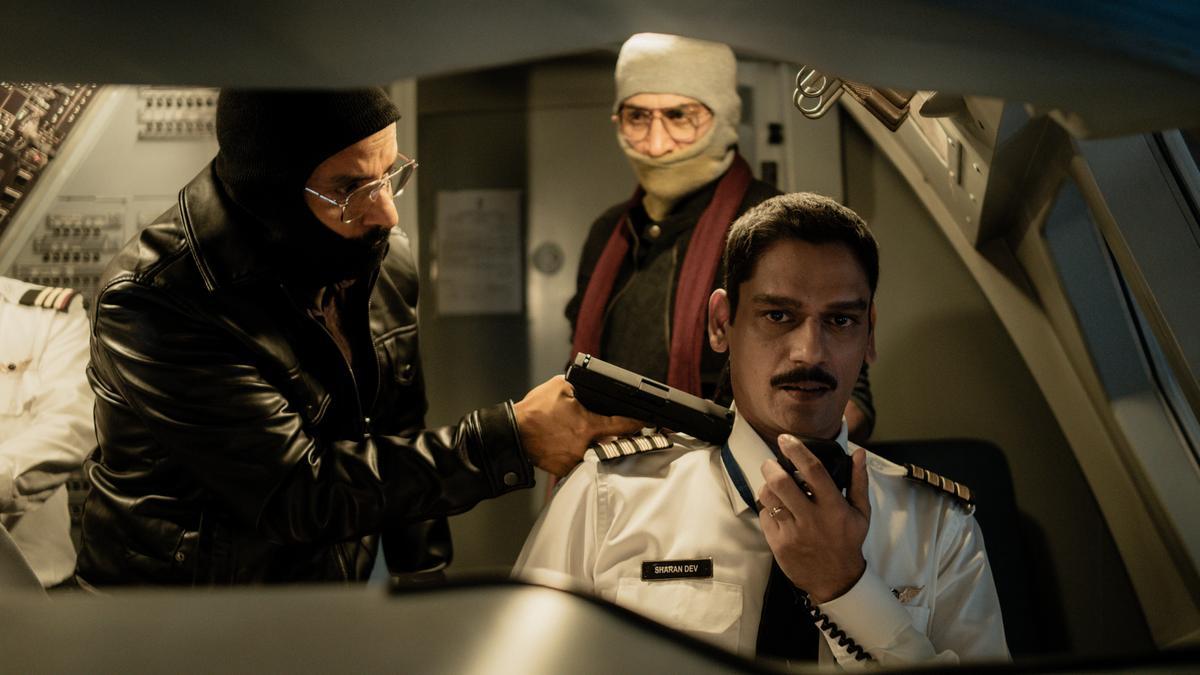
Netflix’s latest web series, “IC 814: The Kandahar Hijack,” found itself in a storm of controversy early this week as several social media users voiced their outrage over the chosen names of the four hijackers depicted in the critically-acclaimed series. In response to the backlash, the Information & Broadcasting Ministry summoned Monika Shergill, the content head of the popular OTT platform. Additionally, a public interest litigation has been filed before the Delhi High Court by the president of an outfit known as ‘Hindu Sena’. The petition alleges that the series distorts the religious identities of the hijackers by naming two among them as Bhola and Shankar, and it seeks the revocation of the series’ certification.
Directed by Anubhav Sinha, the six-episode series dramatizes the hijacking of IC-814, which occurred on December 24, 1999. The ill-fated Airbus 300 had just taken off from Kathmandu en route to Delhi when it was initially diverted to Amritsar, followed by stops in Lahore, Dubai, and eventually Kandahar, Afghanistan, then under Taliban control. After six days of intense negotiations, the hijacking concluded with the Atal Bihari Vajpayee-led NDA government agreeing to release three notorious terrorists—Masood Azhar, Omar Saeed Sheikh, and Mushtaq Ahmad Zargar—in exchange for the safety of the hostages on board.
Drawing from “Flight To Fear,” a first-hand account penned by the aircraft’s pilot, Captain Devi Sharan, along with journalist Srinjoy Chowdhury, the series is part-fact and part-fiction. A disclaimer does assert that it is a work of fiction set against certain real-life events.
The central issue provoking public outrage stems from creative liberties taken by the series’ creators. They opted not to explicitly explain that the terrorists had used codenames during the hijacking, assuming this fact was common knowledge. Various journalistic contributions from that period clarify that the hijackers used aliases, corroborated by a press release from the Union Home Ministry on January 6, 2000. The release identified the hijackers by their actual names—Ibrahim Athar, Shahid Akhtar Sayeed, Sunny Ahmed Qazi, Mistri Zahoor Ibrahim, and Shakir—and confirmed the aliases they employed. “To the passengers of the hijacked plane these hijackers came to be known respectively as (1) Chief, (2) Doctor, (3) Burger, (4) Bhola, and (5) Shankar, the names by which the hijackers invariably addressed one another,” the release stated.
.
Some of those who have expressed their outrage do recognize the historical accuracy of the aliases but remain concerned about future perceptions, especially when the specifics of the hijacking blur with time. BJP leader Amit Malviya commented on X, “The hijackers of IC-814 were dreaded terrorists who acquired aliases to hide their Muslim identities. Filmmaker Anubhav Sinha legitimized their criminal intent by furthering their non-Muslim names. The result? Decades later, people will think Hindus hijacked IC-814.”
Although the series does not explicitly clarify that Bhola and Shankar are codenames, it does unmask ‘Chief’ when negotiations appear to collapse. In a post on X, journalist Neelesh Misra, who also authored a book on the subject, revealed that ‘Chief’ was the brother of Masood Azhar. Within the narrative arc of the series, Bhola and Shankar play minor roles and are referred to by their codenames only once throughout the six episodes.
The controversy has sparked debates on the delicate balance between creative freedom and historical accuracy. Critics argue that the omission of such crucial details might lead to misperceptions and potential communal tensions in the future. Proponents of artistic liberty, however, contend that the series should be viewed primarily as a work of entertainment, albeit based on real events.
The Information & Broadcasting Ministry’s intervention and the pending litigation could set significant precedents for how historical events are portrayed in Indian media, especially on influential platforms like Netflix. In an era where streaming services play a powerful role in shaping public perception, the debate over “IC 814: The Kandahar Hijack” emphasizes the importance of responsible storytelling juxtaposed with the creators’ right to artistic expression.
As the Delhi High Court deliberates on the public interest litigation, the discourse surrounding this contentious issue continues to evolve, reflecting broader societal conversations about representation, memory, and the ethics of dramatization.












